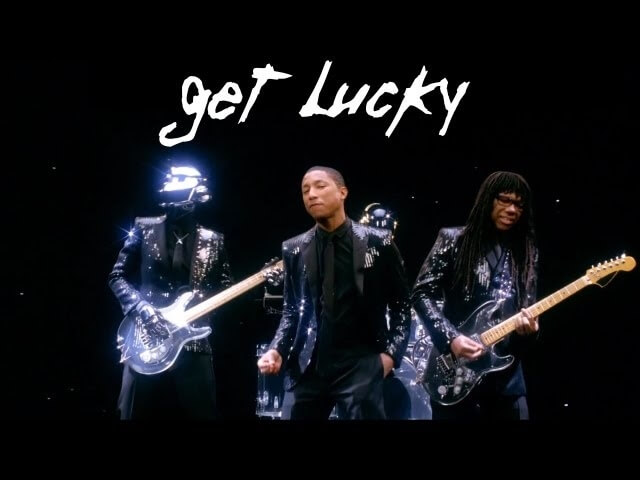Read This: Owen Pallett uses music theory to explain why Daft Punk is popular

Multi-instrumentalist and occasional Arcade Fire member Owen Pallett has been doing the lord’s work on Slate this week, explaining the theoretical basis for the popularity of songs like Katy Perry’s “Teenage Dream.” (It’s music theory, dummy!) Today, Pallett explores Daft Punk’s “Get Lucky,” which he says has become ubiquitous for fairly similar reasons. Pallett addresses the song’s copious amounts of repetition, which he says are a “delicious middle finger” to listeners. As Pallett notes, it’s like Daft Punk, Pharrell Williams, and Nile Rodgers are telling listeners, “This is pop, where repetition is king, and our time is more valuable than yours.”
He gets a little deeper into jargon when it comes to chord progression (“Most of the time it sounds as if it’s in the minor mode of A Aeolian… But the first chord of the progression isn’t A minor, it’s D minor”) and the group’s use of the motet (“I did my best to simplify these melodies to fifth species on staves 3 and 4 for easier visual analysis”). But he’s fairly plainspoken about the group’s semi-iffy control of the English language. As Pallett notes:
“First, this is a specifically Francophonic idiosyncrasy; native English speakers do not ask their lovers to remind them to spend “good time” with them, nor do they identify “good fun” as their motivation for staying up all night.
Secondly, the weighting is all wrong. Good is a word that needs to fall heavy, needs to be placed at the beginnings and endings of phrases. Remember Sir Paul McCartney’s placement of good in “Good Day, Sunshine”—always settling on heavy syllables. “GOOD day SUNshine.” “I’m looking GOOD, you know she’s LOOKing fine.” Worlds away from its apostrophic weighting in “WE’RE up all night for good FUN.” For Daft Punk and Phoenix this little bit of language mangling works in their favor. It sounds off-balance and playful and sexy, like a foreign exchange student who might be a little drunk.”
Pallett’s in-depth look at the song is obviously a little heady, but it’s an interesting read for anyone with at least a passing interest in music theory—or who just wants to sound smarter than all their radio-loving friends.